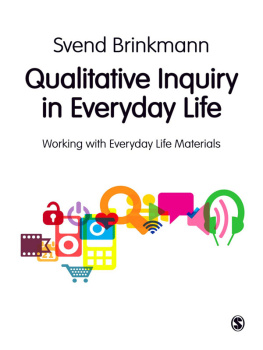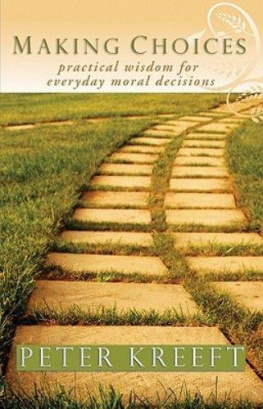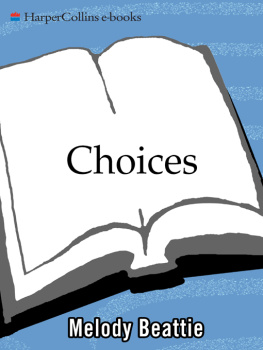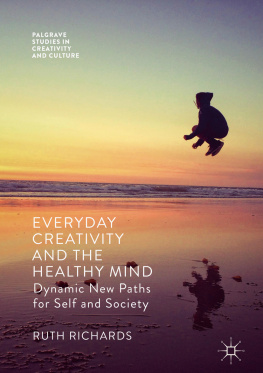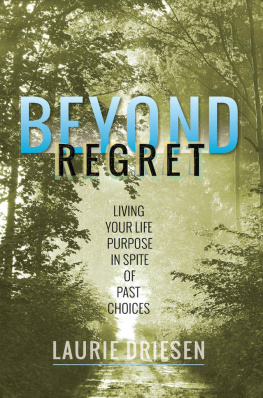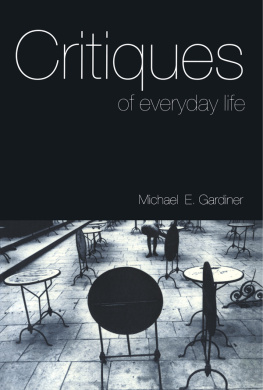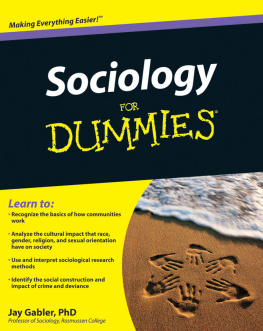Choices and Chances
Second Edition
Choices and Chances
Sociology for Everyday Life
Lorne Tepperman
University of Toronto
Susannah J. Wilson
Ryerson Polytechnic University
First published 1990 by Westview Press
Published 2018 by Routledge
52 Vanderbilt Avenue, New York, NY 10017
2 Park Square, Milton Park, Abingdon, Oxon OX14 4RN
Routledge is an imprint of the Taylor & Francis Group, an informa business
Copyright 1990 by Harcourt Brace Jovanovich, Inc. Copyright 1994, 1996 by Harcourt Brace & Company Canada, Ltd. Published by special arrangement with Harcourt Brace & Company Canada, Ltd.
All rights reserved. No part of this book may be reprinted or reproduced or utilised in any form or by any electronic, mechanical, or other means, now known or hereafter invented, including photocopying and recording, or in any information storage or retrieval system, without permission in writing from the publishers.
Notice:
Product or corporate names may be trademarks or registered trademarks, and are used only for identification and explanation without intent to infringe.
Library of Congress Cataloging-in-Publication Data
Tepperman, Lorne.
Choices and chances: sociology for everyday life / Lorne
Tepperman, Susannah J. Wilson. 2nd ed.
p. cm.
Includes bibliographical references and index.
ISBN 0-8133-2572-2 (hardcover). ISBN 0-8133-2573-0 (pbk.)
1. Conduct of life. 2. Quality of lifeUnited States.
3. Social indicatorsUnited States. I. Wilson, S. J.
(Susannah Jane)
BJ1581.2.T427 1996
306.0971dc20 95-51475
CIP
ISBN 13: 978-0-367-00928-1 (hbk)
Our only guides are our interests, viewed in the largest possible sense; our interests made as self-aware as possible, since it is unlikely we can attain what we do not want, and impossible to want what is not conceived as attainable.
Jacques Barzun, Darwin, Marx, Wagner: Critique of a Heritage (1958)
In this book we urge you to examine your goals and opportunities and then consider the chances that you will get what you want from your education, career, marriage, parenthood, and other parts of your life. The argument here is that we ought to live with our eyes open, gather evidence about the world, choose in our own best interests (broadly defined), and behave rationally.
People's lives are linked and limited by what sociologists call social structure. Our lives are shaped by the choices and actions of people around us: This is sociology's central insight. Popular belief teaches that people generally get what they want from life, if they want it badly enough and acquire the right skills and credentials. Supposedly, they alone are to blame if they fail to get what they want. Yet research shows that most people do not get what they want but settle for what they can get. How can we explain this fact, and what does it teach us?
Sociologythe systematic study of social relationsemerged in the nineteenth century as an attempt to understand the enormous social changes caused by the Industrial Revolution and the French Revolution. Even today sociology remains, at its core, a debate about the human ability to improve social life through reason and organized action.
Sociology does not claim that people are entirely rational or even that sociologists must be, or can be, entirely rational. But it does argue that we must all try to distinguish between beliefs and feelings on the one hand and facts and reason on the other. That is what we are urging you to do when you read this book.
None of us thinks about life in a completely rational way. Often we find it hard, almost impossible, to change the way we live our lives. We may be imprisoned by our fears and passions or by unexamined certainties. When faced with major decisions, we may prefer to consult our feelings, do what family and friends advise, go with hunches, or take a shot in the dark. Sometimes we even rely on luck to get us through. Yet deep down we all know that there must be a better way to make our important life choices.
We cannot claim that the advice this book offers is complete or foolproof. This analysis is only a first approximation. Ideally, this book will make you wonder whether some of the things you feel sure about are really so, and it may get you thinking about the ways you make your own life choices. We assume, simply, that whatever your particular life goals may be, you are aiming to get as much satisfaction out of lifeas much life satisfaction as you possibly can. All the analyses that follow aim at that goal.
Research on life satisfaction has developed in interesting directions in the past decade or two. It now offers us rich information about who is most satisfied with life (and with various parts of lifework, marriage, and so on), under what conditions, and why. You may choose to doubt or ignore the conclusions drawn in this book. After all, a sociologist's conclusion about a category of people to which you belong will not inevitably apply to you. No one knows which characteristics, alone or in combination, will guide or predict a given person's behavior. But if we can get you to analyze the way you live your life and the choices you are making, this book will have succeeded, whatever you decide to do.
This book shows how two sociologists go about examining some major life concerns. Your instructor may have a somewhat different approach. This is our version of what the American sociologist C. Wright Mills called "the sociological imagination," one that draws upon sociology's central goals, concepts, and insights. Reader response to the first edition of this book was very satisfying, and we have looked forward to doing a second edition. But in revising the book we faced a difficult choice: to keep the book largely as it is and simply update the statistics or to make major changes. We have tended toward the second path.
Though we have not made as many changes as we might have, the reader will find one important difference from the first edition: the inclusion of many more references to the recent literature on life satisfaction. The first edition aimed mainly at goading the reader to try out new ideas. This new edition also intends to introduce the reader to much of the research that has been published on life satisfaction. One thing has not changed, however: This is still a teaching book for use in classrooms.
How This Book Relates to Your Textbook
This book was written to supplement the large multitopic textbook you are probably using in your introductory sociology course. How do the two books connect?
First, your textbook discusses sociological topics in an abstract, general way that you may have trouble relating to your daily life. You may not see how the theories it discussesespecially those theories attributed to sociology's founders, Karl Marx, Max Weber, and Emile Durkheimbear on life today. This problem has led some students to believe that theorizing is something people used to do but no longer do. For example, we know graduate students who call the required course in sociological theory "Dead Guys 101."
Actually, all sociologists make and test theories. Even you make theories about society. This book uses theories that can be related back to the "dead guys" discussed in your textbook. But it does not draw an obvious connection with their theories; that is something your instructor may want to do in discussing this book with you. As you learn new things from this book, try connecting them to things you have heard in lectures or tutorials or read in the textbook. Everything should connect.


